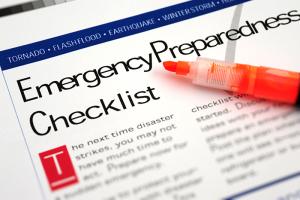Ebola, workplace violence and clinical alarms top January's regulatory roundup
U.S. Ebola capability sufficient but limited
Infection prevention // The United States has sufficient capacity for treating another outbreak of the Ebola virus, but challenges remain a hurdle for many hospitals and health systems attempting to maintain dedicated treatment centers for highly infectious diseases, according to a new study published online in Infection Control & Hospital Epidemiology, the journal of the Society for Healthcare Epidemiology of America. Researchers from the University of Nebraska Medical Center, Harvard Medical School, Emory University, New York-Presbyterian Hospital and Indiana University School of Public Health surveyed the capabilities and capacity of all the designated Ebola treatment centers and found that while the development of the centers heightened nationwide preparedness levels, challenges remained in providing the necessary treatment and often strained an institution’s capacity, especially in key areas such as waste disposal, staffing and pediatric care.
OSHA issues tools to prevent violence in health care
Staff safety // The Occupational Safety and Health Administration (OSHA) unveiled a new Web page developed to provide employers and workers with strategies and tools to prevent workplace violence in health care settings. The page, part of OSHA’s Worker Safety in Hospitals website, complements the updated “Guidelines for Preventing Workplace Violence for Healthcare and Social Service Workers,” which was published by the agency earlier last year. “Too many health care workers face threats and physical violence on the job while caring for our loved ones,” according to Assistant Secretary of Labor for Occupational Safety and Health David Michaels. “Most of these types of injuries are preventable, and OSHA is providing these resources to combat these incidents.”
AAMI releases alarm management compendium
Biomedical // The Association for the Advancement of Medical Instrumentation’s complimentary “Clinical Alarm Management Compendium” provides specific tips and outlines practices already being used by leading institutions. The toolkit is designed to help health care organizations meet the Joint Commission’s National Patient Safety Goal on clinical alarms, under which the Joint Commission expects hospitals to establish and implement policies and procedures for managing clinical alarms starting this month.
HHS encourages participation in response issues
Emergency management // Health & Human Services’ Office of the Assistant Secretary for Preparedness and Response is encouraging hospitals and other stakeholders to sign up on its Information Exchange. The website allows authorized users to participate in conversations about health threats and to share preparedness plans, promising practices and other information in a password-protected environment.
FDA announces Class I ventilator systems recall
Patient safety // The Food and Drug Administration recently announced that eVent Medical is recalling the LS, 5i, and 7i Inspiration ventilators because a faulty switch on the ventilators’ power board may fail, causing the ventilator to shut down without sounding an alarm. If the ventilator shuts down, the patient may not receive enough oxygen and could suffer serious adverse health consequences, including injury or death. This recall includes all models of eVent Medical LS, 5i and 7i Inspiration ventilators manufactured prior to Jan. 21, 2015.




